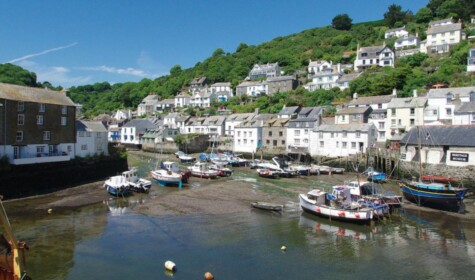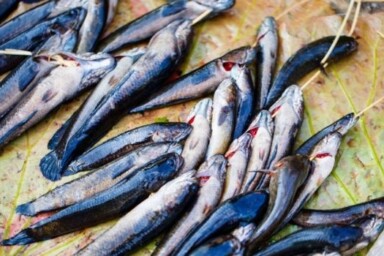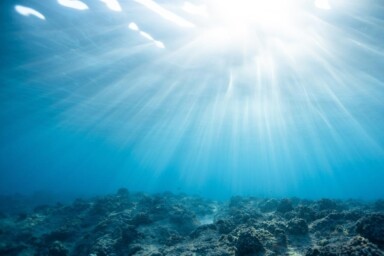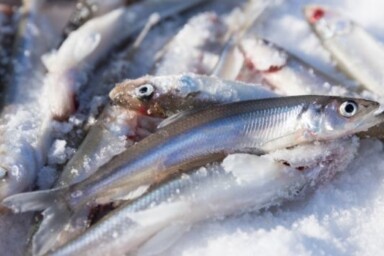Brexit will make a difference to our small operation here at Sole of Discretion.
In the first instance, we export around 25% of our fish to like-minded colleagues in Belgium. The small-scale fisheries sector no longer exists in Belgium, as it is a virtually industrialised fleet, and for this reason our Belgian customers seek to buy British fish from exclusively inshore, small-scale boats. In the past, a single sheet of paper with an address and outline of box contents sufficed. Now we need complete no fewer than five documents – a Health Certificate, Catch Certificate, Storage Document, Process Statement and a Commercial Invoice. In addition, a vet inspects the pallet before dispatch.
In principle, I am in favour of these measures. For example, the Catch Certificates are in place to ensure we don’t trade in illegally landed or endangered species. The reality is, however, that this new trading regime is likely to kill off many small-scale food producers’ ability to import and export with the EU, leaving consumers in the UK with access to only large global brands – imagine a world without your favourite artisan salami or brie!
Our first attempt to export fish to Belgium post-Brexit was January 13th, after three more failed attempts – on one occasion because our labels read ‘UK’ and not ‘United Kingdom’ – the fish finally arrived with our customer on April 3rd at 3 am. All this time, our fish had sat in a freezer in Grimsby. We were charged for storing it there and we were charged for the four aborted dispatches by the transport company. Any hope of profit was lost after the first failed dispatch.
The crux of the problem arises from being small. The volumes we export are insufficient to commission a full shipping container, instead relying on a haulage company to amalgamate orders under a ‘groupage’ scheme. This allows small-scale producers to export low volumes cost effectively. However, if there is a single mistake on any of the documents submitted by the various companies, the entire shipment is rejected. This puts considerable pressure on the haulage companies, who have trucks and drivers held up at ports for days on end, at considerable cost. As a result, many of the haulage companies have simply stopped offering groupage services, indeed, the company that we’d used for years pre-Brexit has yet to restart this year.
No doubt the second time around the paperwork will be easier, but this won’t reduce the cost and time of creating these five documents, or the cost of the vet inspection. We will also have to factor in a longer transit time, as it seems probable there will be delays arising from inaccurate paperwork indefinitely, inevitably adding to storage costs at the port.
Government has offered support to fishery companies exporting, and we’ve applied for funding. If successful, I am minded to use the funds to pay off the haulage company brave enough to attempt a groupage; if they decline to collect from us in future, we face an immediate 25% loss of sales. Brexit certainly hasn’t been good for the small-scale fishing fleet.
Trade aside, what has it meant for our fishers?
On the face of it, Britain has got a 25% increase in quota, (the right to fish certain species), phased in over 5 years. This means little for the small-scale fisher, unless by some miracle the government distributes this extra quota based on the EU’s newly determined allocation to consider environment, society and economy equally, rather than by historic catch record, the more likely basis of the distribution. Even for the bigger boats though, in reality, the Brexit deal resulted in the EU agreeing to hand over 25% of their current fishing quota of certain UK fish stocks. The EU currently has rights to fish a third of the total quota from UK waters, so this uplift for our fishers actually works out at just 8.3%. It’s no wonder that UK fishers don’t feel they’ve got the deal they were promised.
Given the rhetoric on the importance of sovereignty in the Brexit deal, the most curious missed opportunity for the fishers on the south coast is not to have pushed for exclusive fishing access between 6 nautical miles and 12; this could have made a huge difference to the small-scale inshore fishers. All told, our fishers have gained nothing, and fishing is patchy as prices are volatile given the collapse in demand from Europe and UK restaurants.
We need transparency on our food now more than ever, as food standards may potentially drop post-Brexit, and environmental credentials with it. Moreover, the dire consequences of a post-coronavirus economy, makes building local economic resilience ever more important. The small-scale sector employs more people per kilo of fish landed than the large sector and, for the most part, with their low impact trawls, static nets, lines and pots are able to get more per kilo of fish than the industrial sector. Their income is locally spent rather than squirreled away to a distant country. Plus, the small boat catch is processed locally benefitting land-based employment as compares to factory ships who employ mostly a non-UK labour force, and whose hard-earnt wages are usually sent back home.
At Sole of Discretion, we remain focussed on supporting the small-scale fishers, offering them fair, agreed prices irrespective of fluctuating market prices in order to keep the skills and livelihood of these fishers going. Catch less, earn more, treat each fish with dignity and turn each one into tasty, nutritional food.
Photograph: Kernowfile





